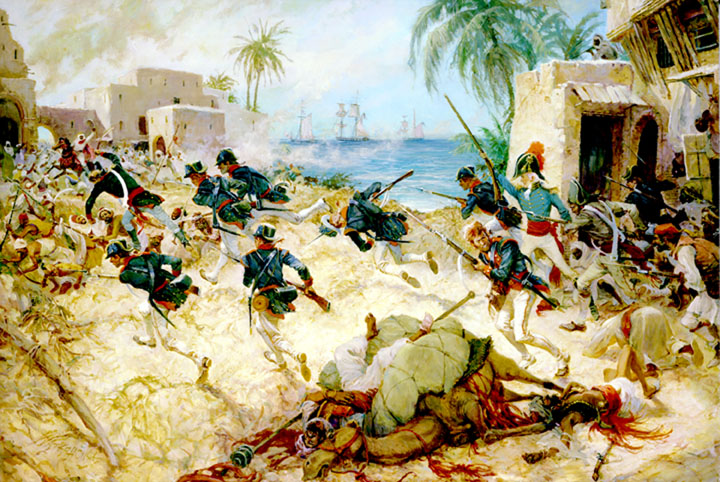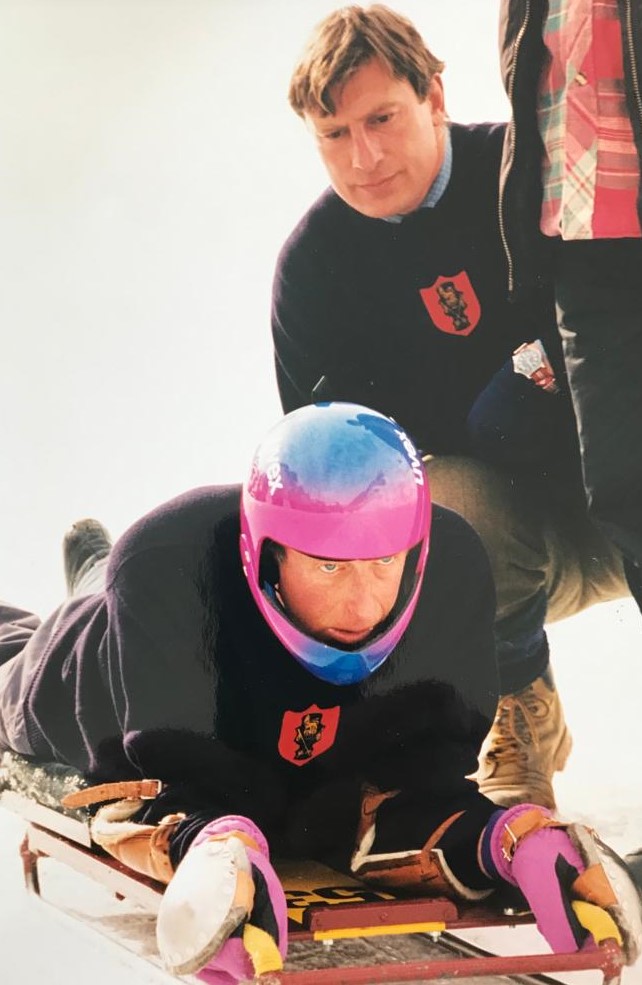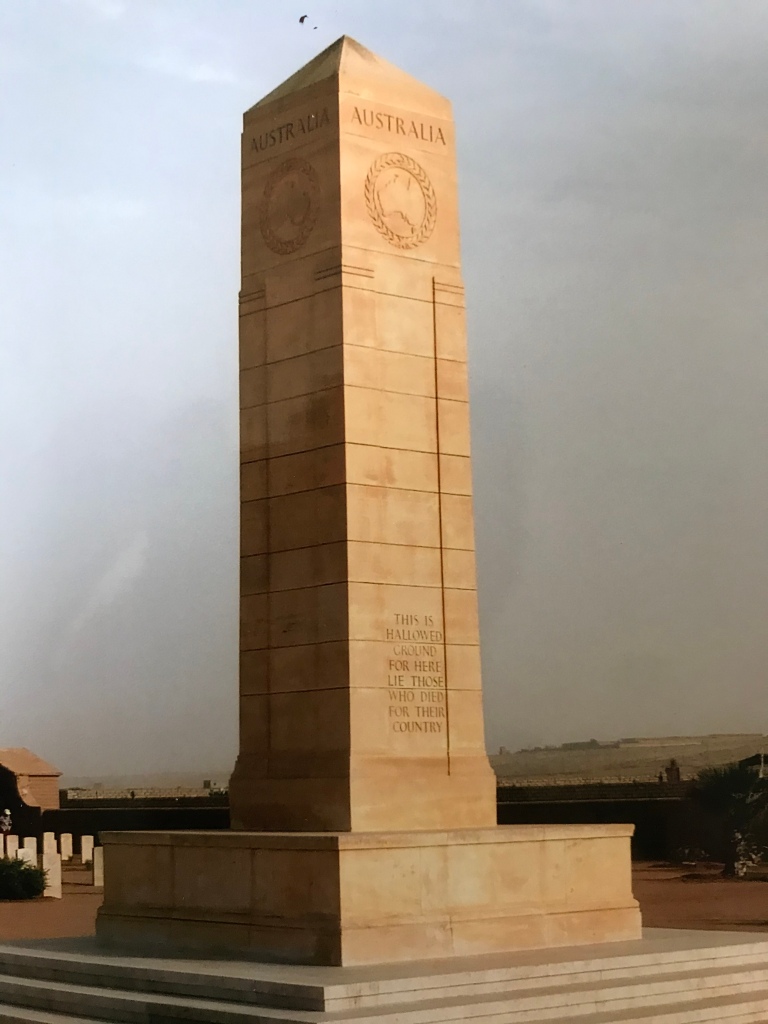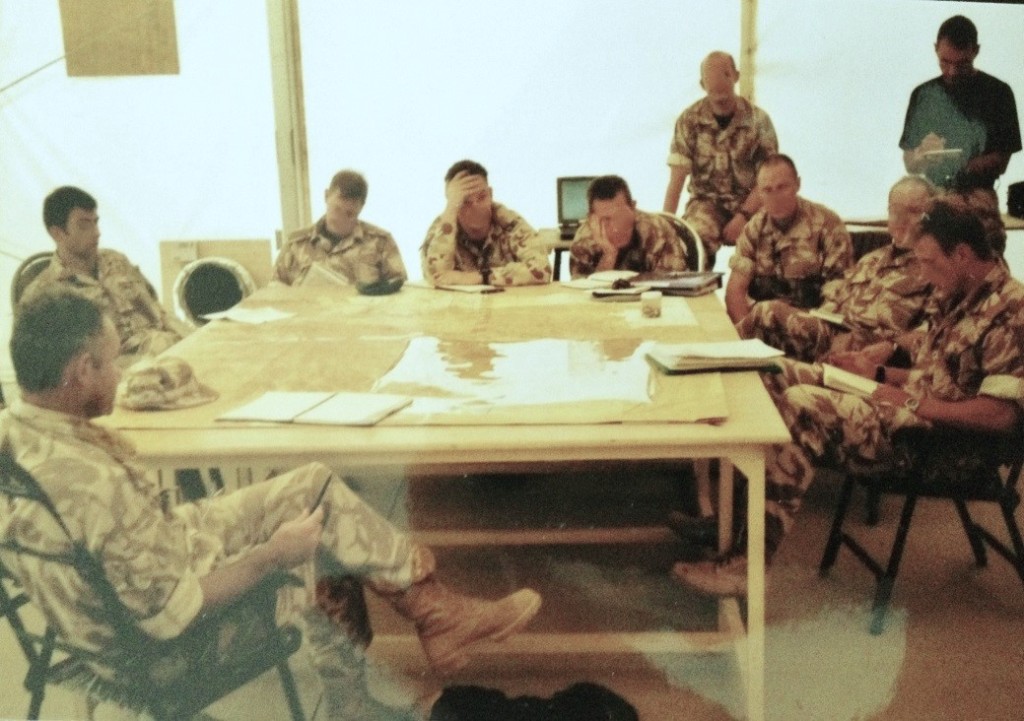Easter Week not only marks the most important time in the Christian calendar, but also one of the most important events in World War II, the Siege of Tobruk. This small Libyan port had been fortified extensively by Mussolini during the Italian occupation, but was captured by the dashing Richard O’Connor on 21 January 1941. However, after O’Connor departed from the Western Desert, the Allies overextended themselves and Erwin Rommel swept them out of Libya – apart from the Australian 9th Division, based within the 16 mile perimeter of Tobruk.
On Easter Tuesday, the Commander-in-Chief, General Wavell, flew to the enclave after conferring with the Foreign Secretary Anthony Eden, who was in Cairo attempting to pull together a Balkan Alliance. Wavell was met by Brigadier John Harding (later Chief of the General Staff) and Major General Leslie Morshead who persuaded the CINC, as they toured the fortifications, that Tobruk could be held. That evening, Wavell walked into the Garrison Mess and recognised George Whittaker behind the bar (made famous in the book To War With Whittaker). The General said that he was sorry His Lordship was missing and bought Whittaker and each of the other stewards a whisky before heading back to Cairo.
Two days later, Rommel launched a devastating assault that continued throughout the Easter weekend. The result was victory for the Southern Hemisphere (with some help from the Royal Horse Artillery) and a thoroughly deserved posthumous Victoria Cross for Corporal John Edmondson from Wagga Wagga, who died of his wounds after saving the life of his sergeant on Easter Sunday. He is buried in Tobruk war cemetery with over 2,000 other Allied soldiers.
After the war, the media quickly forgot about the strategic importance of this action. However, the Easter battle was inspirational because it showed for the first time in the war, that the Blitzkrieg could be defeated. In many ways, the siege was a microcosm of the whole war and the successful resistance against all odds encouraged millions of British citizens who followed it avidly on the radio and in newspapers at a very difficult time for the country. It seems to me that in 2024, when industrial war continues to shape the world, the spirit of resistance witnessed in Tobruk remains as relevant as ever.
Australian Memorial at Tobruk











